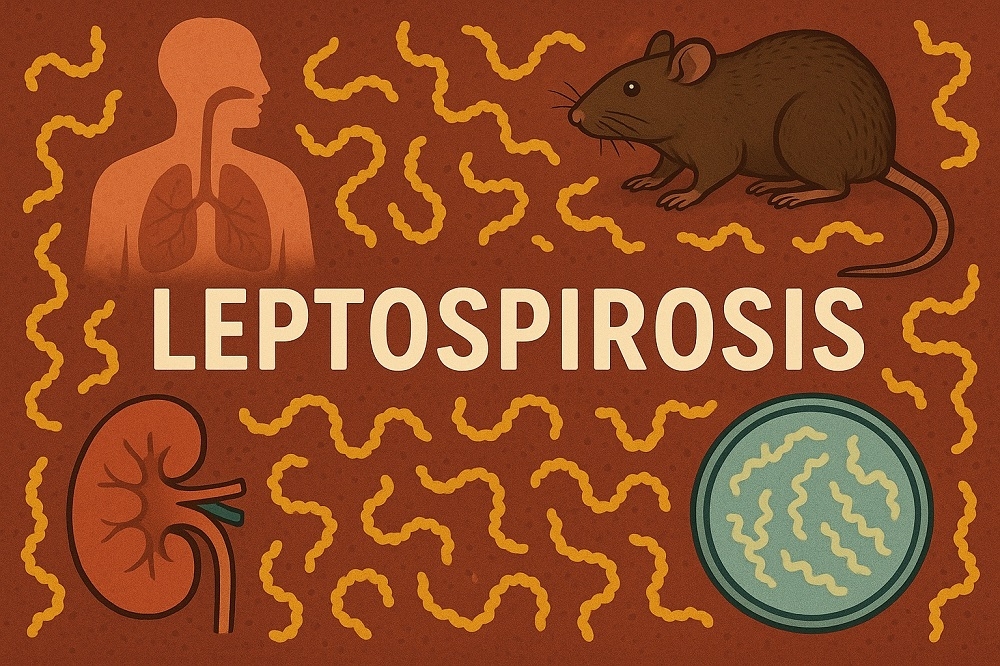Leptospirosis and Your Gundog
Protecting Your Working Partner
What Exactly is Leptospirosis?
Leptospirosis is a bacterial disease caused by various strains (serovars) of Leptospira bacteria. These bacteria are found worldwide in soil and water. The disease can affect many animals, including dogs and humans, primarily targeting the kidneys and liver, although it can impact other organs too. It can range from a mild, almost unnoticed illness to a severe, life-threatening condition.
How Do Dogs Catch Leptospirosis? The Risks for Gundogs
The Leptospira bacteria are primarily spread through the urine of infected animals. Rodents (rats, mice, voles) are common carriers, but wildlife (like foxes and deer) and even other infected dogs can shed the bacteria. Your gundog faces potential exposure in several typical scenarios:
- Contaminated Water: This is a major risk. Bacteria thrive in damp environments. Your dog can become infected by drinking from, swimming in, or simply walking through contaminated puddles, ponds, ditches, rivers, or marshy areas where infected animals have urinated.
- Contaminated Soil: Soil can also harbour the bacteria, especially if it's damp and has been contaminated by urine. Sniffing or digging in these areas can pose a risk.
- Direct Contact: Contact with urine from an infected animal.
- Bites/Ingestion: Less commonly, through bite wounds from an infected animal or by eating an infected carcass.
Recognising the Signs: Symptoms of Leptospirosis
Symptoms can be varied and sometimes vague, appearing anywhere from a few days to a few weeks after exposure. Watch out for:
- Fever
- Lethargy, reluctance to move, muscle tenderness or stiffness
- Shivering
- Loss of appetite
- Vomiting
- Diarrhoea (sometimes with blood)
- Increased thirst and urination (potential sign of kidney damage)
- Dehydration
- Jaundice (yellowing of the gums, whites of the eyes, skin – indicating liver involvement)
- Changes in breathing
- In severe cases, kidney failure or liver failure can develop rapidly.
Diagnosis and Treatment
If you suspect your dog might have Leptospirosis, contact your vet immediately. Early diagnosis and treatment are critical for a better outcome.
- Diagnosis: Your vet will perform a physical examination and likely recommend blood tests (to check kidney and liver function, and antibody levels) and urine tests (to look for the bacteria).
- Treatment: Treatment typically involves:
- Antibiotics: To fight the bacterial infection. A specific course is needed to clear the infection effectively.
- Supportive Care: This is vital, especially in severe cases. It may include intravenous fluids to combat dehydration and support kidney function, medications to control vomiting, and other therapies depending on the organs affected. Hospitalisation is often required.
- Antibiotics: To fight the bacterial infection. A specific course is needed to clear the infection effectively.
Can Humans Catch Leptospirosis? (Zoonotic Risk)
Yes, Leptospirosis is a zoonotic disease, meaning it can be transmitted from animals to humans. People usually get infected through contact with urine from infected animals (including dogs) or contaminated water/soil, typically via cuts in the skin or mucous membranes (eyes, nose, mouth).If your dog is diagnosed with Leptospirosis, take precautions:
- Avoid contact with your dog's urine.
- Wear gloves when cleaning up urine accidents.
- Wash your hands thoroughly after handling your dog or cleaning contaminated areas.
- Disinfect contaminated surfaces effectively.
- If you feel unwell after your dog's diagnosis, consult your doctor and inform them about the potential exposure.
- Vaccination: This is the most important preventative measure.
- Vaccines are available that protect against several common strains of Leptospira.
- Historically, the "L2" vaccine covered two strains. More commonly used now is the "L4" vaccine, which covers four strains, offering broader protection relevant to the UK and Europe.
- Discuss vaccination with your vet. They can advise on the most appropriate vaccine (L2 vs L4) for your dog based on local risks and your dog's lifestyle.
- Vaccination requires an initial course (usually two injections) followed by annual boosters to maintain immunity. Crucially, ensure these boosters are kept up to date.
- Environmental Management:
- Try to discourage your dog from drinking from stagnant water sources like puddles or slow-moving ditches where possible (though we know this is challenging with enthusiastic gundogs!). Provide fresh water frequently during work.
- Minimise rodent populations around your home, kennels, and training areas. Secure feed stores.
- Hygiene: Practice good hygiene, especially if dealing with multiple dogs or potentially contaminated environments.
Leptospirosis is a serious disease, but by understanding the risks, recognising the symptoms, and prioritising prevention, particularly vaccination, you can significantly reduce the threat to your valued gundog. Keep those annual health checks and vaccinations up to date, remain vigilant for any signs of illness, and always consult your vet promptly if you have concerns. A healthy dog is a happy and effective working partner.
Disclaimer: This article provides general information. Always consult your veterinarian for specific medical advice regarding your dog's health and vaccination needs.
